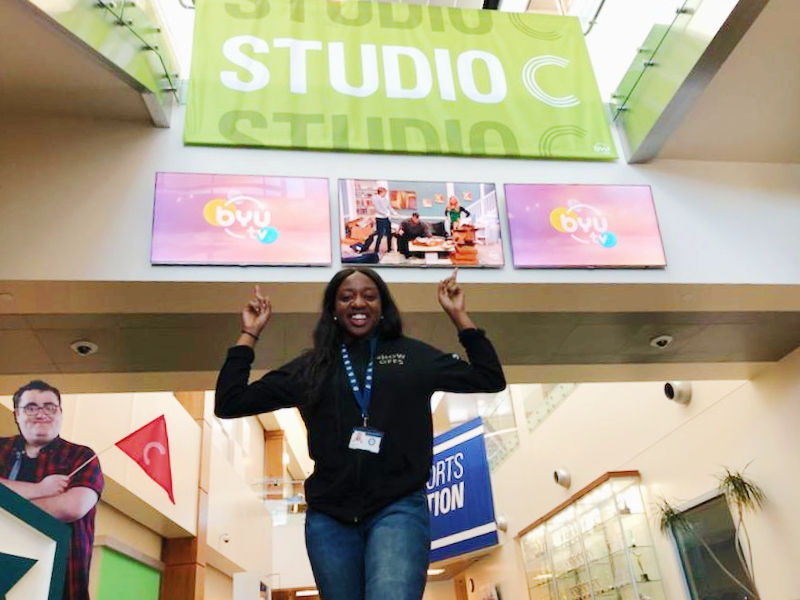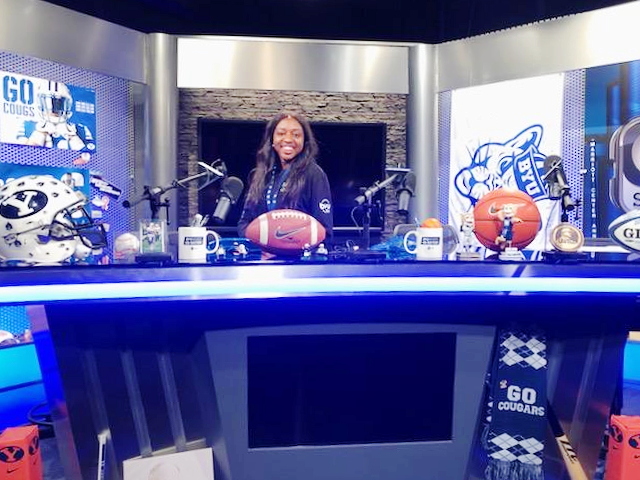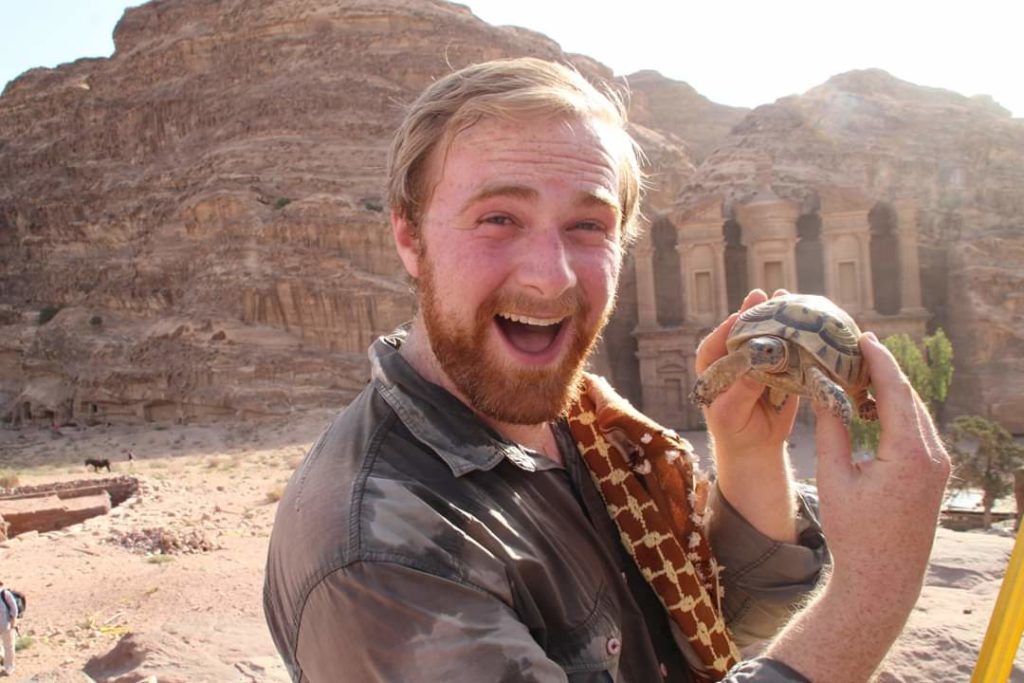Nearly 60% of majors at BYU require some type of internship to graduate. In 2016, BYU President Kevin J Worthen introduced a new initiative focused on “inspiring learning.” This initiative focuses on experiential learning, encouraging students to take advantage of opportunities such as internships, student employment, volunteer work and study abroad programs.
The Office of Experiential Learning website says, “Experiential education is characterized by intentionality and thoughtful reflection that support an active learning experience.”
In order to graduate with an active learning experience, students can apply through their college or through the Kennedy Center for an internship, study abroad, or for direct enrollment or field school. With so many options, some students struggle deciding what will be most beneficial for finding a job or gaining experience. These three experiences from past and current BYU students may help.
Internship
Karmen Kodia is a senior studying news media on the broadcast track.
“I’ve always had an interest in television,” Kodia said. “I just love the news culture and knowing what’s going on around me. (Plus) I’m very interested in people’s stories.”

Although an internship is required for her major, Kodia said she can’t get an off-campus paid internship, or job for that matter, because she’s an international student. Kodia is from Sweden, and after four years in Utah and two years at BYU, she learned about a internship opportunity with BYUtv. Kodia applied for a media production specialist position and got the job.
“What I learn at school, I see it live at work,” she said.
Kodia mainly works as a lighting technician and camera operator for BYU Sports Nation and Studio C, though she works on other shows and often gets to shadow the producers as well.
Kodia said her internship is 20 hours a week of hard work and deadlines.
“Working for Studio C is cool,” Kodia said, “But you have to put in a lot of time and work. But then every other week on Friday, called show week, we have live audiences and everything comes together. It’s great satisfaction to watch and say, ‘I helped with that.'”

Kodia said she loves being in front of and behind the camera.
“I would love to host my own show in the future,” she explained. “But I would actually want to start behind the camera as a producer.”
Kodia said she wishes her internship would allow her the chance to produce a segment of one of the shows. While she only gets to shadow, she said she’s loving the experience.
“It helps me because I get to network with people who are on TV and others behind the camera. I love that I get to work in a setting that I want to be in when I’m older,” Kodia said.
She explained that she’s pursuing her internship largely to expand her knowledge of television and learn more of what she wants to do in the future. For example, when she started out, she had her heart set on anchoring the news, but now she’s thinking more about working in entertainment.
Until she graduates and starts her career, Kodia said she loves learning and the opportunity to be creative at BYUtv.
Field school
“If I were to do an internship in archaeology, I don’t think I would’ve received the same level of experience from that internship as I did at the field school,” said Jake Hubbert, a BYU student who graduated last May in anthropology with an emphasis in archaeology. Hubbert recently returned from his third field school in Petra, Jordan.

Hubbert explained that the biggest difference between an internship and field school is that field school is not done through a large company or corporation. Field school is an internal program, whereas many internships are external, meaning students go outside the university to work for a company.
The first time Hubbert went to Petra was for a six-week trip in 2017. He said he went in with “little to no expectations” and was mostly hoping to learn about archaeology and site-see. Additionally, he took a BYU class for field school credit which required him to do several reading assignments and a write-up.
Hubbert said his second trip to Petra was a seven-and-a-half week trip in 2018 when he was able to go as an aid. He explained that sometimes archaeologists will pay for someone to come back if they liked them the first time. Unlike his first time as a student, as an aid, his travel and housing were paid for.
The third time was in 2019 for a six-and-a-half week trip, again as an aid to help the other students.
“This last time I kind of had a much more matured idea of how this could help me. So I went with the expectation of just gaining, not only more experience but experience specifically in certain areas such as improving languages like Arabic and improving archaeology skills,” Hubbert explained.
He said one of his most memorable experiences was getting to help excavate a gravesite.
While waking up at 6 a.m. to hike up to a hot, dusty site 30-40 minutes away to work for hours in the dirt may not sound like fun to some, Hubbert said the experience only confirmed his love for archaeology.

Study abroad
Alex Bollinger, a junior studying international relations, also chose to go the international route to fulfill her graduation requirement. She went on a study abroad to Fang, Thailand, through direct enrollment, which means the program was independent of BYU.
The foundation she went with is a nonprofit organization called Help International, which specializes in entrepreneurship and business, public health, education and infrastructure development projects around the world.

After receiving help from the Kennedy Center to complete the application, Bollinger got the news that she was accepted to go on the three-month experience.
“I almost didn’t believe it,” Bollinger said. “I’ve never been outside the country before, so I had no idea what my experience was going to be like, and I was super excited.”
She said she was asked to take an online class to receive BYU internship credit during her study abroad. For the class, she chose to learn about sex trafficking in Thailand. This meant that amid long and sweaty hours of humanitarian work with Help International, she also traveled to other cities and interviewed non-governmental organizations that were working to combat sex trafficking.
Bollinger said a typical day on her study abroad began with waking up at 7 or 8 a.m. to discuss the projects for that day, with the weather factoring into their activities. They would then pile into a couple of pick-up trucks and drive up the mountains to different villages.”
Bollinger said she was impressed by the way Help International encouraged self-sufficiency in those they were helping.
“It wasn’t really like we were just serving them,” Bollinger explained, “It was more like we were working beside them. It’s not about giving them handouts; it’s about helping them to get out of poverty on their own.”
Some of those projects consisted of rebuilding roofs, making playgrounds, teaching English and teaching health lessons.
One of her favorite projects was building a water pipeline in a mountain village.
“It was a really long hike, and the weather was super humid and there were a lot of bugs,” she said, but clarified that serving was worth the inconveniences.
She later posted about the experience on Instagram, saying, “I have discovered that I am weak in comparison to the hardworking and loving Thai people that we work with. They are crazy innovative, smart and accepting. I may be helping and providing opportunities for change, but they make that change happen for their families and neighbors. They do all the work and I am humbled to be taught by them.”
Bollinger said the experience was life changing.

“People are the same everywhere,” Bollinger said. “I think we like to notice the differences in our cultures, but I don’t think we like to realize the similarities that every family has in every part of the world. Just the ability to connect with another human being, even if you don’t speak the same language, you can still laugh with them and you can still communicate with them.”
Bollinger said going on her study abroad made her rethink what she wants to do with her future. “I originally went into my major thinking I was just going to work for the government,” she said, “But I think it moved me more toward working in a non-governmental organization. Maybe doing more humanitarian work or something focused more on human rights. Even if it doesn’t pay as much, it’s something that’s important to me.”




